Ethnic Clashes Test 'Melting Pot' Southwest Nigerian City
The ruins of Shasha market, in the southwest Nigerian city of Ibadan, were still smouldering three days after deadly ethnic clashes.
Trader Ibrahim Adelabu surveyed what was left of the business he had built. His one blessing was that his family had escaped unhurt.
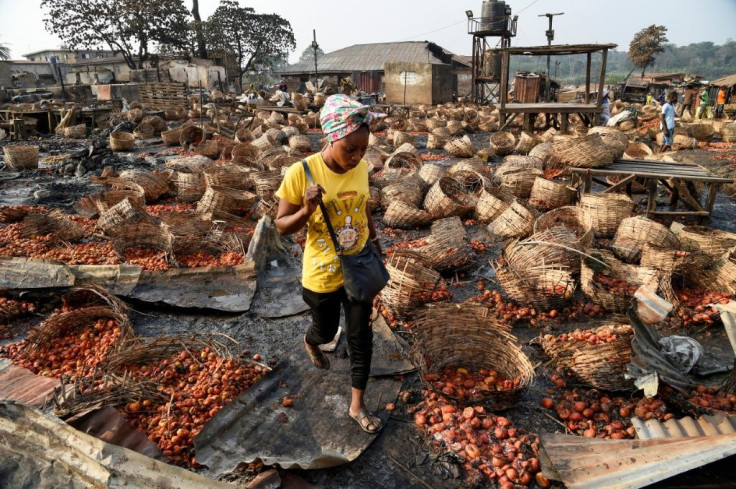
Soldiers patrolled the streets and an armoured personal carrier guarded the market entrance as Adelabu joined others, picking through the debris of houses and stores while residents wailed with grief nearby.
"This place used to be my house and shops," said the 51-year-old trader, an ethnic Yoruba, as he showed AFP the wreckage of his building reduced to rubble.
"Where do you want me to start from now? I lost 25 million naira (around $65,000). My joy is that my family escaped being lynched."
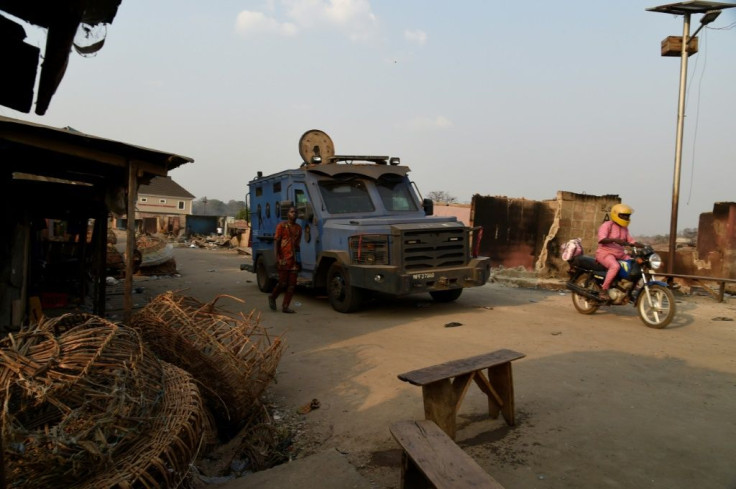
Tense calm returned on Monday to Ibadan, capital of southwest Oyo state, after the clashes between the Yoruba who dominate the region and traders from the Hausa community, who mainly hail from Nigeria's north.
Ethnic tensions are not uncommon in Africa's most populous country, where more than 250 ethnic and linguistic groups live side by side and where some southern states see a federal government that favours the north.
Yoruba and Hausa residents in Ibadan say the explosion of violence shocked many in a city where communities lived mostly in peace for decades.
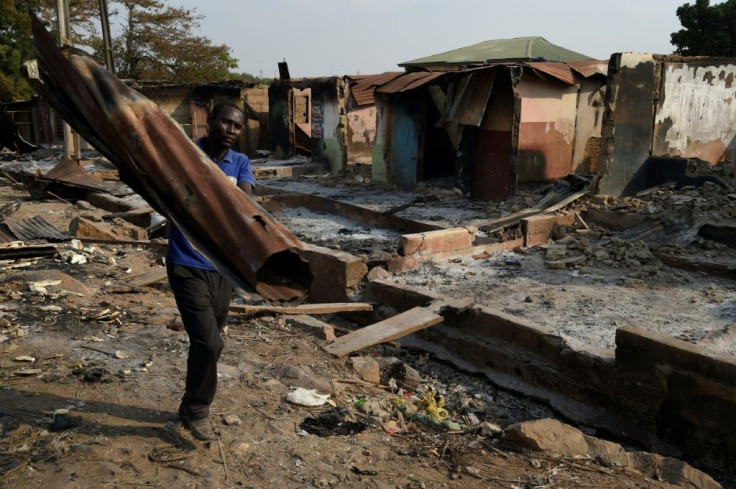
But southern states have seen a surge in intercommunity tensions in recent months over northern Fulani herders who move south for grazing cattle, often putting them in confrontation with Yoruba farmers.
Fiery rhetoric from some southern officials blaming northern Fulani for a surge in crime and kidnappings in their regions has stoked tensions.
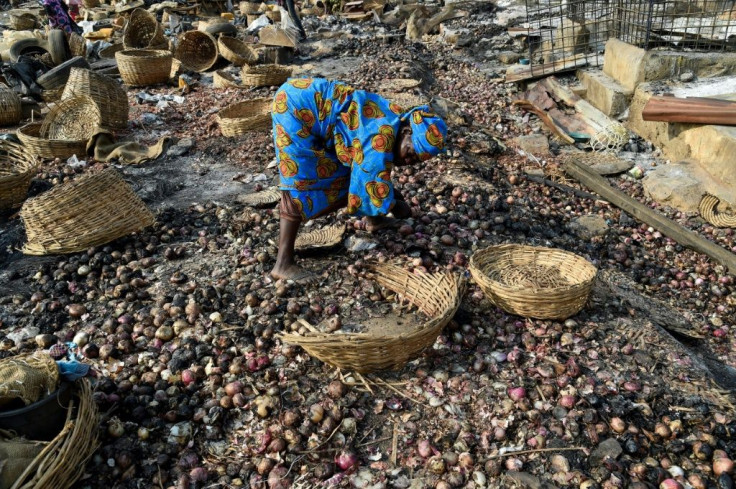
The Ibadan clashes were serious enough for President Muhammadu Buhari, himself a Fulani from the north, to call for unity, urging religious and community leaders to work together.
The Ibadan clashes erupted after a disagreement between a Hausa labourer and a Yoruba trader, and spread quickly, residents said.
The toll remains unclear, and the authorities while lamenting loss of life have remained tight-lipped about details.
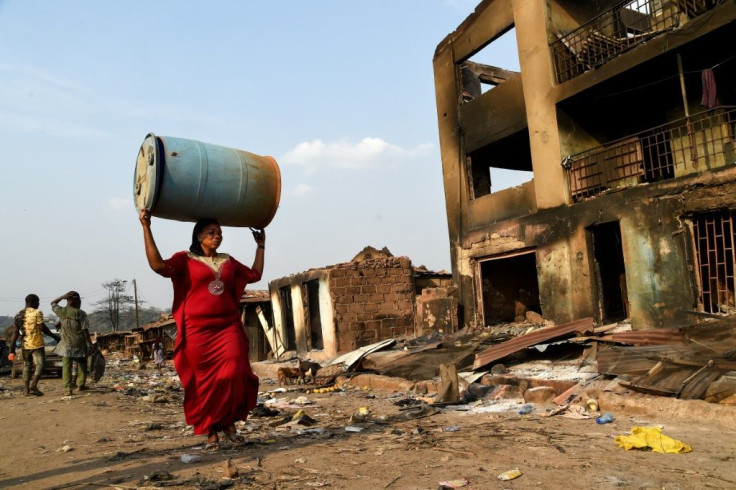
Residents said two Yoruba youths had died in the violence, while Haruna Yaro, the special assistant to the Hausa community leader in the market, said 23 Hausa traders and labourers had been killed. Oyo state police did not immediately return calls seeking confirmation.
Several thousand Hausa traders took refuge in the palace of the local leader of the Hausa community and have now fled the area, Hausa representatives said.
"The Hausas are tenants in the community. We have been living together for years," Adelabu said.
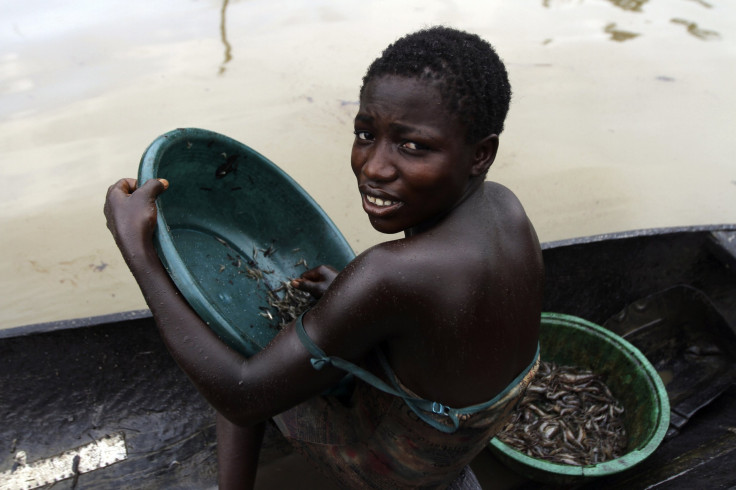
"But we are surprised that they turned against us, looting and destroying our properties."
Vice President Yemi Osinbajo said Shasha market was supposed to represent the country's unity -- a "melting pot," he said, where northern traders would bring their goods to the southwest.
"For decades, traders from the North have done business with their brothers from the Southwest and they have lived in peace and even inter-married," he wrote on Twitter.
Yaro, the Hausa community representative in the market, told AFP "a minor misunderstanding" had ended in carnage.
"We have been living together as neighbours for over 40 years. Hoodlums from town hijacked and started killing, looting and burning houses and shops," he said.
Yaro said Hausa leaders had reached out to Yoruba leaders to make peace.
"I was born and bred here. I speak Yoruba fluently," he said. "I don't have any other place to go."
The clashes came at a time of increased tensions between northern Fulani herdsmen and southern farmers, one of Nigeria's most persistent security problems.
Buhari has warned against using ethnicity for political leverage, but some regional leaders accuse him of not acting decisively because he is himself an ethnic Fulani.
Some southwestern leaders have blamed Fulani herders for an increased in criminal activity, and mobs have attacked some Fulani settlements.
Oyo State Governor Seyi Makinde on Monday appealed for calm and called for a full investigation in the Ibadan violence.
"Individuals who have taken to stoking up ethnic flames in Oyo either though their utterances or actions or posts on social media are enemies of our state," he said in a broadcast.
On Monday, residents covered their noses to ward off the stench from rotting tomatoes and peppers carpeting the market floor near the charred wreckage of shops and burned vehicles.
For Yoruba trader Folashade Oladele, 68, who lost two houses and 17 shops, the devastation was too much.
"I don't know how to start," she said. "All the properties my husband left me have been burnt."
© Copyright AFP 2024. All rights reserved.





















